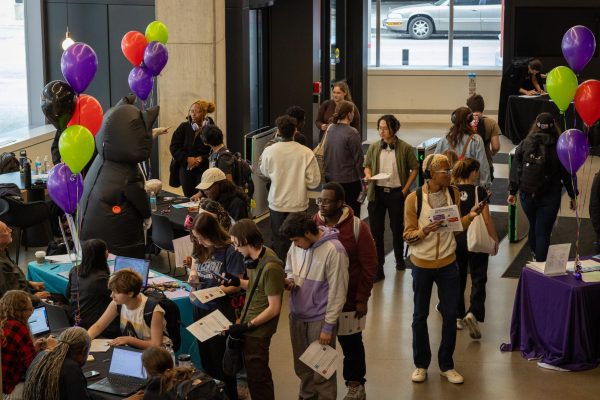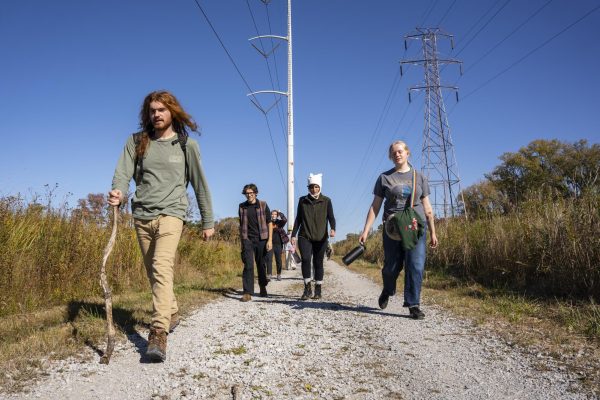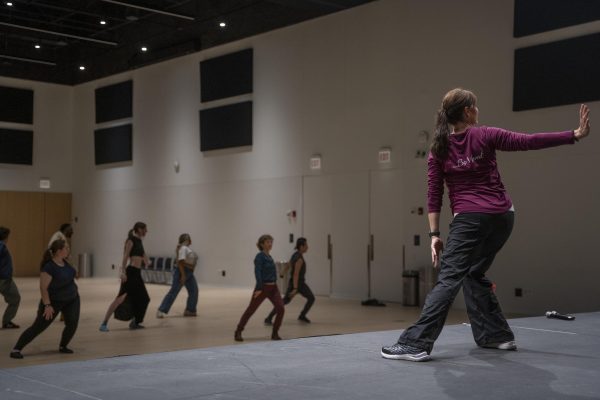Wish List for 2017–2018: Columbia needs to re-evaluate identity, communication
May 8, 2017
The current academic year at Columbia has had great triumphs and stressful losses. As the Spring 2017 Semester and academic year draw to a close, the administration needs to reflect upon its decisions to better prepare and encourage students for the future.
Because of the country’s political state and nationwide uncertainty, the college has held important campus talks this semester, such as the immigration crash course titled “Critical Questions: What is Immigration Like Today?” which addressed fears triggered by President Donald Trump’s crackdown on undocumented immigrants and visa holders, as reported March 6 by The Chronicle. However, communication between students and the administration remains an issue.
The administration should continue to expand those discussions; it needs to be more aware of the topics students want to talk and learn about. Administrators must engage with students beyond a cursory email or campus discussion. A good example of campus communication was the email President and CEO Kwang-Wu Kim sent to students after Trump was elected, which reminded students of the school’s inclusiveness and offered support to those emotionally affected.
Still, students often feel neglected or are forced to hunt for answers when people who are supposed to help them, instead, misdirect them. Not to mention, students would like to see problems resolved, or resolutions they suggest be implemented.
Forums and assemblies such as campus talks offer a chance for learning and interacting with fellow students, but few people have been attending these events, as reported April 24 by The Chronicle. The lack of attendance highlights a deteriorating sense of community and interest in what’s happening around campus. Students deserve to feel as if they are a part of a community, especially because many students aren’t locals and are unfamiliar with the city.
Students come from across the country to study at a diverse school, but Columbia has been neglecting its artistic roots with new, more general marketing. Columbia can’t be presented as a school for everyone because it’s a niche school. This is an urban campus with unique majors, including theatre technology, comedy writing and performance, and social media and digital strategies. The college’s identity is becoming blurred as administrators focus more on finances than students.
Since the departure of Mark Kelly, former vice president of Student Success, the lively, colorful identity seen in Wabash Arts Corridor murals has seemingly vanished. Students deserve more than spiraling tuition and cuts in budgets for specialized classes in their majors, and it’s time the administration fixes that.
The administration’s inaccessibility is another issue. This year, The Chronicle has covered campus news—both controversial and noncontroversial—and consistently has been denied interviews by the college’s News Office, as discussed in the April 24 Editor’s Note. Student reporters are not the only ones affected by the administration’s unwillingness to speak about what’s happening in the college; the whole student body loses out on potentially important information that may be missing from a generic statement.
The administration also needs to show a greater commitment to retention of diverse faculty and staff. Students have talked a lot about Columbia’s inclusivity of all genders, sexualities and races among students, but diversity in faculty also needs to be addressed. A diverse staff is the strongest pillar of Columbia and losses like that of Michael Fry—leaving the college over alleged discrimination—do not show collegewide support.
The college can’t afford to lose any more students and faculty, and to stop that from happening, it must review its weaknesses. The 2017–2018 academic year needs to be better if there is any hope of raising retention rates. The college needs to present a united message to students that says it can live up to promises.






